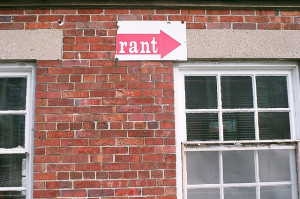I once read that the opposite of love is not hate, but rather fear. Interesting, right? Fear, is the absence of love, it is what drives anger, violence, and other negative emotions/actions. Hate is a complement of love, therefore, it is comprised of love at its core. This may sound a bit metaphysical to some, but the point that I am trying to get at is that fear is the opposite of love.
That being said, when we act out of fear, we unleash all kinds of wrath onto ourselves and others, which prevents us from doing good for ourselves and others. Let me give you an example. When you are stuck in a job that you absolutely dislike, but are too afraid to take the next step and apply somewhere else for fear of letting go of your supposed comfort.
Refusing to change for the better even though there are greater benefits than consequences to the change for fear of [insert excuse here]. There are so many instances where fear holds us back from our true potential, and let me tell you, I have been guilty of all of them I’m sure.
But the beauty of life and living, I believe, comes when we release that fear. Yes, it is easier said than done, but if you go through the correct process for yourself, the benefits are amazing. Suddenly, that new positive relationship you have been looking for everywhere appears to you. Your dream job becomes suddenly available and you have the opportunity to apply.
It is important to note as well that opportunities present themselves to us on the daily, whether we choose to act on them is on us. Again, what keeps us from acting on those great opportunities is fear.
Fear is comparable, in my opinion, to sucking our thumb as an infant. It becomes ingrained in us as a sort of comfort that we can revert to whenever something is different or challenging. We know that in the long run it is bad for us, but we do it anyway. Why? Because it is what we learned as children.
Fear kept us from running into the street because a car might run us over. Fear kept us from touching the stove because we might get burned. Fear kept us from staying out too late as teenagers because we might get in trouble. Fear, fear, fear.
Now, in all of these examples I just gave fear has kept us safe, but it is a false sense of security with a double agenda. Yes, fear keeps us from doing dangerous things, but at the same time, it also keeps
us from doing amazing things.
What we should focus on, then, is respect. I respect traffic laws, therefore, I will not run into the street. I respect that heat can hurt me, so I will not touch a hot stove. I respect my parents and their rules, so I will not come home late.
See what I just did? I turned the fear around and converted it to respect.
If you respect someone, you don’t try to infringe on their rights. However, if you fear them, you try to take away their rights and privileges for fear of what they may do if they have them.
I can go on and on about fear and how it is the sole cause of so many terrible things that happen in our lives and in our country, but the truth of the matter is, I don’t want to. Why? Because I don’t want to sound preachy and you do not want to hear it either. It’s not hard to see for yourself how fear is at the core of violence, oppression, racism, discrimination, etc. I invite you to look beyond what the telecasters tell you and really examine the news for its core values. You will find fear in the most unlikely of places, even in a television commercial advertising a clothing sale.






